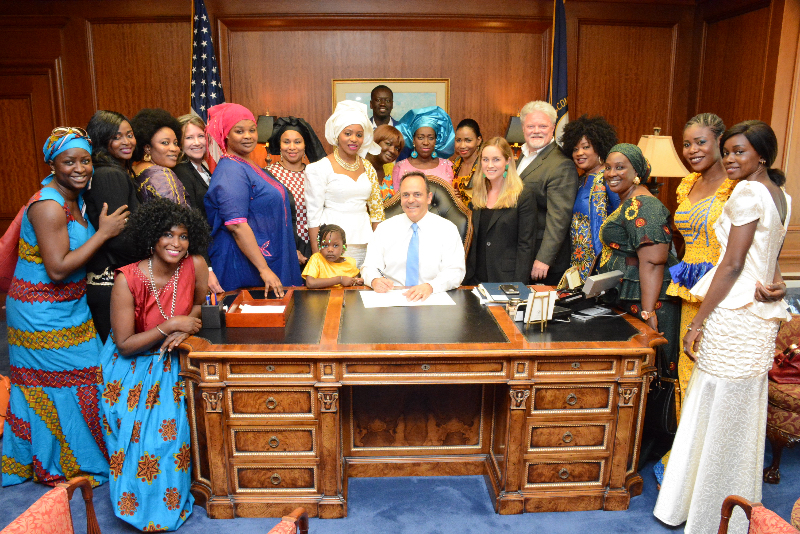A small but wonderful story emerged out of Kentucky last week. Thanks in part to efforts by the libertarian Institute for Justice organization, Governor Matt Bevin signed a new bill into law that exempts natural hair braiders in Kentucky from needing a license to practice their craft.
Natural hair braiding is popular among people of African descent, and in Kentucky, many of the practitioners were recent immigrants from countries in West Africa. This new bill will make it easier to make a living by eliminating the need for them to take 1,800 hours of training, which could cost up to $20,000. Such training requirements would be onerous in any context, but they are particularly egregious in this case as the standard training courses typically do not involve anything related to hair braiding.
Like most regulations, these rules also had a disproportionately negative impact on poor people. If you come from a wealthy family that can put you through college or let you live at home, then the requirement of taking 1,800 hours of education is annoying but surmountable. You can afford to go without an income for a year while taking classes and living rent-free.
By contrast, consider the case of a new African immigrant or refugee who already knows how to braid. They may not be fully fluent in English yet and may have little verifiable / relevant job experience for potential employers. Meanwhile, if they don't come from a wealthy background, they need to start making a living right away to support themselves and possibly their families. In this circumstance, taking a year off without any source of income and spending thousands of dollars on training probably isn't an option at all. So they may be forced to take a low-paying job instead of using a lucrative skill they already possess, all because of government regulation.
Once we understand the consequences of the previous licensing requirements, it's difficult to see why anyone would support such a rule. The official answer in the case of licensing is typically that it protects the consumer.
This claim should always merit skepticism, but it's particularly preposterous in the case of hair styling. I submit to you that no one has ever incurred irreparable damage through getting a bad haircut (or hair braid, as the case may be). And if they have, that actually just helps my case--since the deliverer of such a haircut was almost certainly required to be licensed when they did it.
No, that's not what this licensing rule was about. If you want to understand why a law exists, you should look for the private interests, not the public ones. In the case of hair braiding licenses, there are two key beneficiaries:*
- The people involved in implementing the licensing system, whose salary is partly dependent on the licensing system continuing to exist. And,
- The for-profit colleges that provide the education that is required for the licenses. A significant part of their business can evaporate overnight if license requirements are weakened.
According to the Institute for Justice, the initiative to exempt hair braiders from licensing faced only one source of opposition. And it came from one of the special interest groups mentioned above. From the press release (emphasis added):
The effort faced only one attack. After the House Licensing and Occupations Committee approved the bill unanimously and it was sent to the full House, Rep. Hubert Collins—whose wife chairs the Kentucky Board of Hairdressers and Cosmetologists—introduced a last-minute floor amendment that would still have made it impossible for braiders to work legally. (He told the media that he had not spoken to his wife about the issue.) But in the face of overwhelming support for braiding freedom, Rep. Collins did not bring his amendment up for a vote—he simply voted no. S.B. 269 passed the House 86-8.Fortunately, the special interest group could not successfully defend an indefensible law. So Kentucky's market is now that much freer than it was before. Consumers get more options; and new African immigrants can start a business without fear of legal reprisals. It's a beautiful example of how the much-hated concept of deregulation can help poor people, consumers, and entrepreneurs all at the same time. The only ones who suffer are the rent-seeking special interests, whose jobs and profits depend on government rules rather than individual preferences.
*Another possible beneficiary of strict licensing could be individual practitioners who already spent the time and money needed to get a license. These people understandably might not like to see their investment become next to worthless. Having said this, the benefit they receive is neither as significant nor as visible as the benefits earned by the other groups. For this reason, they would likely produce less opposition to possible reforms than the groups mentioned above.

No comments:
Post a Comment